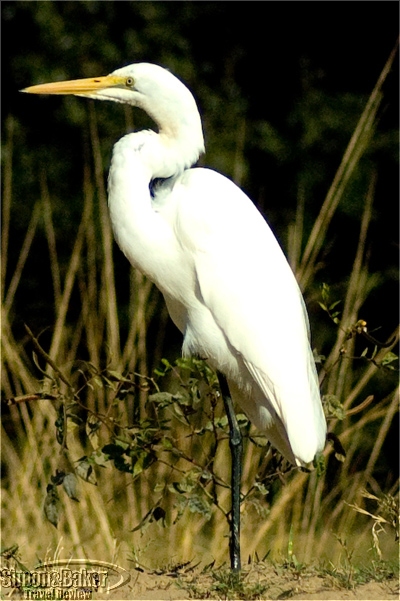
by Editor | Jul 1, 2007 | Africa, Lower Zambezi, Simon and Baker Travel Review, Zambia
The Sausage Tree Camp whimsically announced itself as the motorboat taking me down the Zambezi River approached its landing dock. Pristine conical Bedouin tents peering through the extravagant canopy of riverine forest in the Lower Zambezi National Park? Indeed! The camp consisted of seven Bedouin-style circular tents discreetly positioned above the bank of the scenic entrance of the Chifungulu channel. Each tent offered complete privacy, along with a terrific view of the river and an island filled with shivering reeds where big game loved to hide. The camp’s décor was an inspired fusion of styles resulting in minimalist luxury that left the senses free to concentrate on the intense wildlife activity around and within the camp.
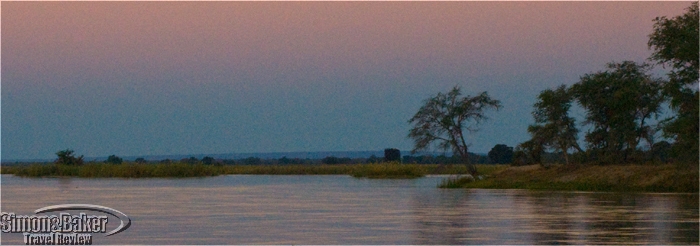
by Editor | Jul 1, 2007 | Africa, Lower Zambezi, Simon and Baker Travel Review, Zambia
Located downstream from Lake Kariba on the northern bank of the Zambezi River, the Lower Zambezi National Park is the most recent of Zambia’s parks. Established in 1983, immediately across the river from Zimbabwe’s world famous Mana Pools, it is still an area of mainly untouched wilderness. The park stretches for 75 miles (120 kilometers) between the Chongwe River to the west almost to the confluence of the Luangwa River to the east, and extends 20 miles (32 kilometers) inland to the Zambezi escarpment. Although the park covers an area of 1,580 square miles (4,092 square kilometers), the spectacular backdrop of the steep escarpment acts as a natural barrier to most species, concentrating most of the game’s activity near the edge of the river.
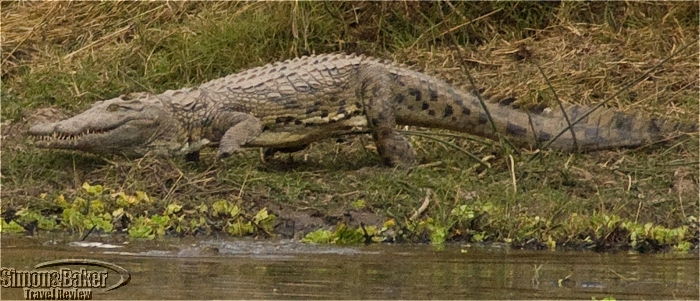
by Editor | Jun 1, 2007 | Africa, Simon and Baker Travel Review, South Luangwa, Zambia
My visit to Luwi was an exciting safari back in time! This remote bush camp located deep in the wilderness of the South Luangwa National Park consisted of four reed and thatch huts with polished mud floor and a small bar area nestled under a canopy of venerable Natal mahoganies. Luwi was a seasonal camp open only during the dry months of June through October. There were virtually no roads in this far-flung area of the park; activities were mainly on foot, lead by long-time Luwi guide Sam Nkhoma, accompanied by an armed scout. At this property, the emphasis was on identifying and following fresh tracks, as well as bird and plant identification.
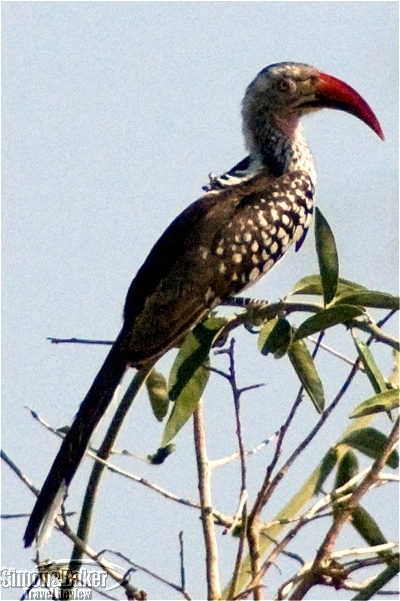
by Editor | Jun 1, 2007 | Africa, Simon and Baker Travel Review, South Luangwa, Zambia
Nkwali was located in the Game Management Area immediately across the river from the South Luangwa National Park, on a prime vantage point of the eastern bank of the Luangwa River. Discretely nestled in a grove of soaring ebony trees, the camp’s six guest chalets and bar area offered a spectacular view of the steep far bank of the river and the acacia forest that constituted the boundary of the park. On the back side of the camp, the dining area was built on a low platform overlooking a small lagoon where a variety of game frequently came to drink. Nkwali successfully coupled the casual atmosphere and intimate proximity to wildlife that only a bush camp can offer with the indulgent amenities of the best safari lodges. From a comfortable lounge chair near the bar, I spent a contented afternoon siesta time watching a herd of elephants wading in the shallow waters of the west bank of the river. I then took their cue and went for a refreshing swim in Nkwali’s swimming pool before teatime.
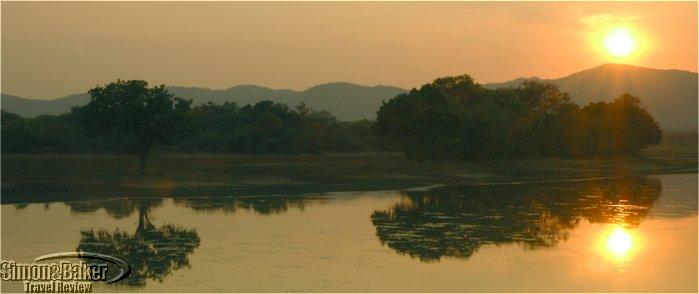
by Editor | Oct 1, 2006 | Africa, Simon and Baker Travel Review, South Luangwa, Zambia
Tucked in the shade of ancient ebony trees at the apex of a permanent oxbow lagoon, Chindeni was a verdant oasis in the parched immensity of the South Luangwa National Park when I visited in the final weeks of the dry season. Everything about the camp exuded welcoming abundance, from the warm reception of the staff to the comfort of the tented accommodations and the profusion of game around the lagoon. Superb vistas of the Nchendeni Hills filled the horizon. The inviting common areas consisted of spacious, thatch-roofed platforms, raised high above the lagoon, and cleverly designed around the trunk of a giant ebony tree that contributed both a sculptural quality and cooling shade to the structure. It included a long viewing deck that was a perfect place to enjoy an early morning breakfast while contemplating the spectacular sunrise over the hills.
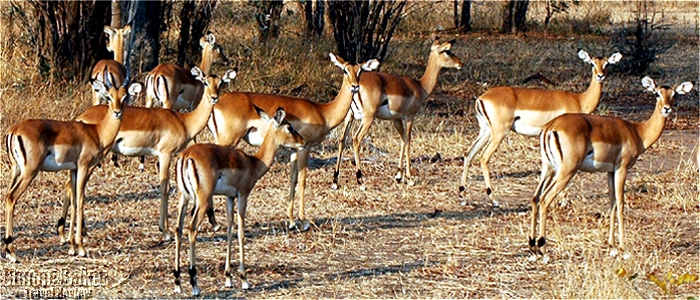
by Editor | Oct 1, 2006 | Africa, Simon and Baker Travel Review, South Luangwa, Zambia
It was already well into the evening when I arrived at Kuyenda, a remote bush camp in the South Luangwa National Park. It was my first destination in the park, at the end of a lengthy journey from the United States, and the start of my maiden safari. I immediately felt transported to a timeless Africa I had expected to be long vanished, other than in my imagination! The camp was nestled in a grove of giant trees, facing a grassy meadow that gently sloped down about three hundred feet to the edge of the Manzi River. It consisted of four spacious guest rondavels, traditional South African circular huts built entirely of local wood, reed and thatch. They were clustered around a thatch-roofed, open-wall dining and lounge area. The entire camp was bathed in the soft glow of oil lanterns, as was the long dinner table invitingly set at the edge of the dry riverbed. The darkness echoed with a rich cacophony of sounds that hinted at abundant wildlife nearby.






